Anxiety affects millions of men worldwide. Many don't realize that physical health problems can trigger or worsen it. Chronic discomfort, sleep issues, or hormonal changes can lead to worry and stress. This can lead to overwhelming anxiety that affects all parts of life.
The Hidden Connection Between Body and Mind
The link between physical health and anxiety starts with how the brain talks to the body. It sends complex signals, hormones, and nerve messages. When something is physically wrong, the brain receives distress signals. This can trigger anxiety even without immediate danger.
Men often struggle with this connection. Cultural norms may prevent them from acknowledging emotional reactions to physical issues. You may feel irritable or anxious. But usually, discomfort or sleep and anxiety cycle cause these feelings without you even knowing.
Mental health experts are noticing anxiety's physical roots. They are exploring how better physical health can reduce anxiety. This shows that separating physical and mental health creates false boundaries. Your nervous system doesn't work that way.
Approach to Mental Health Education for Men
At Gendrics, we aim to offer complete education on anxiety and mental health. We focus on all factors that cause emotional distress. Anxiety is not separate from physical health, lifestyle, or life situations.
Gendrics tackles anxiety by looking at how different factors connect. This includes physical symptoms, sleep quality, hormones, stress responses, and emotional wellness. Our educational content helps you understand anxiety better. This way, you can make smart choices for managing it well.
This article explores the link between prostate health issues and anxiety. It also discusses their impact on mental wellness. It highlights the link between mind-body health connection in men. Prostate issues impact millions of men. They can disrupt sleep, cause worry, and lead to anxiety about health and aging.
Setting clear expectations matters for this discussion. This content shares educational information about the links between connection between prostavive and anxiety connection. It is not medical advice. Always consult qualified healthcare providers for diagnosing and treating anxiety disorders and physical health problems. Self-treatment of anxiety can be dangerous and ineffective compared to professional care.
Understanding Anxiety and the Mind-Body Connection
Anxiety represents your body's natural alarm system responding to perceived threats or dangers. When this system is overactive or reacts to constant stress, anxiety can persist. This affects your mental health and quality of life.
How Physical Symptoms Trigger Anxiety
The relationship between physical discomfort and anxiety works through many biological pathways. When your body feels pain, discomfort, or doesn't work right, it triggers your stress response. This activation boosts stress hormones, like cortisol and adrenaline. These hormones trigger anxiety symptoms. You might feel a fast heartbeat, tense muscles, and heightened alertness.
Your brain sees these stress signals as alarms. It worries that something is wrong with your health, which can lead to anxiety. This response made sense in the past when pain meant danger. Today, chronic symptoms can cause ongoing anxiety, even without real threats to survival.
Sleep disruption from physical symptoms creates particularly strong anxiety connections. When you can't sleep well for nights in a row, your brain struggles to manage emotions. When you're tired, the prefrontal cortex can't help you think clearly about your worries. The amygdala, your brain's fear center, becomes more active. This makes you more likely to feel anxious and worried.
The Anxiety-Physical Health Cycle
Treating physical symptoms can help reduce anxiety. This shows the connection between connection between prostavive and anxiety connection. Physical symptoms cause stress and worry. This activates your nervous system, increases muscle tension, and leads to discomfort. As a result, anxiety about your health rises, creating a hard-to-break cycle.
This cycle shows that people with chronic health issues have anxiety disorders two to three times more than others. Anxiety isn't just about feeling upset. Stress hormones, neurotransmitter levels, and nervous system function can increase the likelihood and intensity.
Breaking this cycle often means tackling both physical symptoms and anxiety at the same time. If you only treat anxiety, you may still feel physical discomfort and stress. Focusing only on physical symptoms can keep worry and stress around, even if you feel better.
Anxiety Symptoms You Shouldn't Ignore
Noticing anxiety symptoms shows when worry shifts from normal to needing help.
Common anxiety symptoms in men include:
- Constant worry that's hard to control.
- Feeling always on edge or unable to relax.
- Irritability and anger that feel out of proportion.
- Trouble concentrating or a blank mind.
- Muscle tension and restlessness.
- Sleep issues, like difficulty falling or staying asleep.
- Physical signs, such as a rapid heartbeat, sweating, or stomach problems during stress.
Men tend to show anxiety differently than women. They often focus more on irritability, anger, and physical symptoms. In contrast, women may experience more worry and fear. This difference means that men's anxiety often goes unnoticed. Their symptoms may not fit the typical signs of anxiety.
If anxiety lasts for weeks or months, it's important to seek help. Symptoms that impact work or relationships, cause intense distress, or trigger panic attacks need help. Anxiety disorders are treatable. However, they often don't get better without help.
Prostate Health Concerns and Anxiety Development
Prostate health and mental health show how physical problems can cause anxiety. This anxiety can impact mental health and reduce quality of life.
Common Prostate Symptoms Creating Anxiety
Frequent nighttime urination represents one of the most anxiety-provoking prostate symptoms. Waking up three, four, or five times a night to urinate can lead to anxiety issues. First, chronic sleep disruption impairs emotional regulation and increases vulnerability to anxiety. Worrying about needing to urinate can cause anxiety. This makes it hard to fall asleep, even if you don't actually need to go. Third, concern about symptoms worsening or indicating serious illness triggers health anxiety.
Urinary urgency and difficulty cause daily stress. People worry about finding bathrooms, feel embarrassed in social situations, and fear accidents. This anxiety can cause people to avoid social situations. They may limit their activities and constantly check bathroom locations. These actions reinforce anxiety and lower the quality of life.
Prostate issues can cause pain or discomfort. This leads to ongoing stress that drains your emotional energy. Feeling uncomfortable often keeps your stress response system active. This can lead to anxiety symptoms, even when you're not thinking about your health.
Health Anxiety and Medical Worry
Anxiety about serious illness represents a particularly challenging aspect of prostate health concerns. Many men worry that symptoms indicate prostate cancer or other serious conditions. Health anxiety can be overwhelming. It can mean frequent symptom checks, many doctor visits, and endless online searches. This makes it hard to accept medical reassurance.
Health anxiety is more intense and persistent than everyday health concerns. It also affects how people function. Concern drives you to get medical help and follow advice. But anxiety leads to too much worry. This worry persists even with reassurance and disrupts daily life.
The uncertainty surrounding prostate symptoms often fuels anxiety. Symptoms fluctuate, making it difficult to know whether you're getting better or worse. Treatment options have varying effectiveness, creating worry about whether the treatment will work. Many prostate conditions develop slowly. This makes it hard to tell when normal aging turns into a problem that needs treatment.
Impact on Relationships and Self-Esteem
Prostate issues can cause anxiety. This worry often impacts self-esteem and relationships, too. Sexual function concerns create anxiety about intimate relationships. Physical symptoms create embarrassment that leads to social avoidance. Chronic worry and irritability strain family relationships. Sleep disruption affects patience and emotional availability with partners and children.
These relationship impacts create more anxiety. You might worry if your symptoms harm important connections. You could think your partner is frustrated or losing patience. Also, you may feel you're failing in your relationship roles and responsibilities. This layered anxiety—concerns about health and relationships—can feel overwhelming. Without proper support and treatment, it can grow even stronger.
Men often feel alone with these worries. Cultural messages make it hard to talk about prostate health and emotional issues. Isolation increases anxiety. It reduces opportunities for support, insights, and advice from those who faced similar challenges.
What Is Prostavive Colibrim Supplement? An Educational Overview
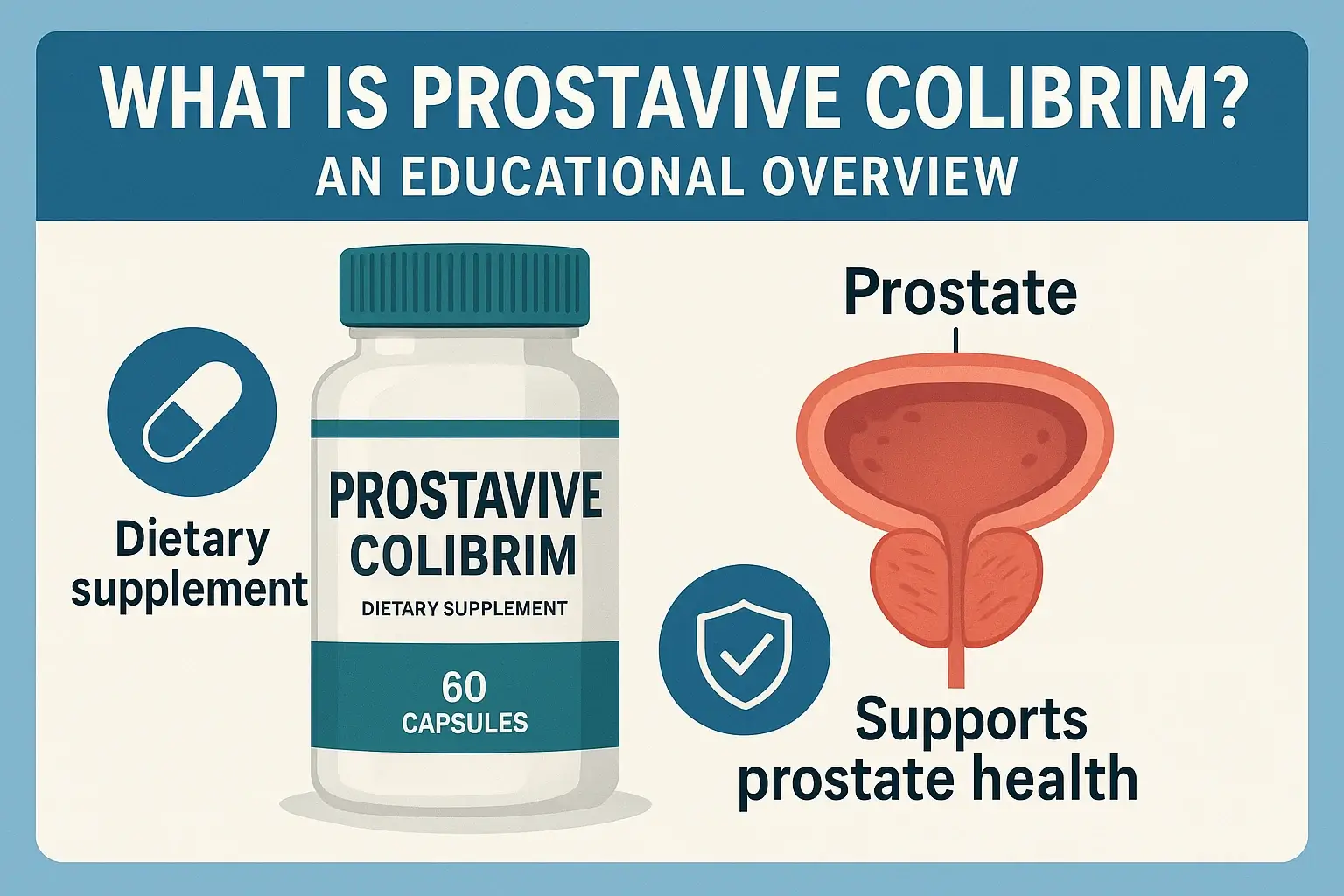
Prostavive Colibrim supplement is a wellness product. Knowing its place in the market helps us see how it might help with physical symptoms linked to anxiety.
Product Description and Common Ingredients
Prostavive Colibrim is a natural dietary supplement. It's designed to support prostate health. It usually includes a mix of plant extracts, vitamins, and minerals. These ingredients are linked to prostate health in both traditional and alternative medicine.
Common ingredients in prostate health supplements are:
- Saw palmetto berry extract: Used for urinary symptoms.
- Beta-sitosterol: A plant compound studied for prostate health.
- Pygeum africanum bark extract: From traditional African medicine.
- Pumpkin seed extract: Rich in zinc and fatty acids.
- Lycopene: An antioxidant found in tomatoes.
- Zinc: Important for health.
- Selenium: Supports immune function.
- Vitamins E and D: Essential for various body functions.
The scientific evidence supporting these ingredients varies considerably. Some ingredients may help reduce urinary symptoms in some studies. However, evidence for others is limited or inconsistent. Research quality differs. Many studies get funding from supplement manufacturers, not independent researchers.
Important Distinctions About Supplements
Understanding how supplements differ from medications matters critically for setting realistic expectations. Dietary supplements are not FDA-approved to diagnose, treat, cure, or prevent any disease. The FDA regulates supplements less than prescription drugs. Manufacturers must ensure safety, but they don't need to prove effectiveness before selling products.
Supplement makers can say they "support prostate health" without strict clinical trials. These claims are very different from medical claims about treating conditions. Medical claims need a lot of research and FDA approval.
Quality and purity of supplements vary significantly between manufacturers. Supplements differ from prescription medications. They don't have standard doses or purity rules. So, they can have different amounts of active ingredients. They might also include contaminants or not contain what the label says.
This regulatory context means that some research might show benefits for specific ingredients. However, individual products may fail to deliver these benefits. This can happen because of quality issues, low doses, or different ingredient mixes from the research.
Theoretical Connections to Anxiety Relief
The potential pathway from natural prostate supplement like Prostavive Colibrim use to anxiety reduction involves multiple assumptions. If a supplement lowers urinary frequency, it can help with sleep. Better sleep can improve emotional control, so anxiety may be reduced. Each step in this chain depends on the previous one being true.
However, this theoretical pathway has not been directly studied. We lack research specifically examining whether natural prostate supplements like Prostavive Colibrim reduce anxiety symptoms. The connection is still uncertain. It relies on logical assumptions, not on results from clinical trials.
For some men, even small improvements in physical symptoms can help reduce anxiety. This helps reduce health worries. It boosts sleep quality, reduces stress, and helps people manage their health. However, these potential benefits apply only if supplements actually improve physical symptoms meaningfully.
Understanding Anxiety Treatment: Evidence-Based Approaches
Before considering supplements for anxiety, know the proven treatments first. This knowledge helps you make better choices and focus on what really works.
Professional Treatment for Anxiety Disorders
Cognitive Behavioral Therapy (CBT) represents the gold standard psychological treatment for anxiety disorders. CBT helps you spot anxious thoughts that might be exaggerated or unrealistic. You can look at evidence for and against these beliefs. It also guides you to think more balancedly about situations. You slowly confront situations you fear. You'll find they are less dangerous than your anxiety makes them seem.
CBT helps many people reduce anxiety symptoms by the end of treatment. Benefits last even after therapy ends. You've gained skills to manage anxiety for the long run.
Medication for anxiety can help reduce symptoms. This is true when healthcare providers prescribe it. You can use it while also working on psychological approaches.
Common anti-anxiety medications are:
- SSRIs and SNRIs: Used for long-term anxiety management.
- Benzodiazepines: Help with short-term symptom relief.
- Buspirone: Targets generalized anxiety.
Medication works best when combined with therapy rather than used alone. This mix tackles the biological reasons for anxiety and the learned thoughts and actions that drive it.
Lifestyle Approaches Supporting Anxiety Management
Exercise is one of the best natural ways to treat anxiety. Many studies back this up. Regular physical activity cuts anxiety. It releases endorphins that boost mood. It also burns off stress hormones, like cortisol. Exercise improves sleep quality and distracts from anxious thoughts. Plus, it builds confidence through achievement.
Regular aerobic exercise can work as well as medication for mild to moderate anxiety, research shows. Brisk walking for 30 minutes most days is a great way to stay healthy. It counts as moderate activity and offers many benefits.
Sleep improvement addresses a major factor in maintaining anxiety.
Good sleep hygiene practices include:
- Sticking to a regular sleep schedule.
- Creating a comfortable sleep space.
- Limiting caffeine, especially after noon.
- Avoiding screens before bed.
- Using relaxation techniques to wind down.
For men with prostate symptoms that disrupt sleep, tackling these issues is key to better sleep. However, sleep hygiene practices matter regardless of what's causing sleep and anxiety cycle.
Stress Management Techniques
Mindfulness and meditation can lower anxiety. They teach you to notice anxious thoughts without getting lost in them. You learn to stay present instead of worrying about what might happen. You also accept uncomfortable feelings instead of resisting them.
Practicing mindfulness for 10-15 minutes each day can greatly lower anxiety symptoms over time. Many apps and programs make learning mindfulness accessible.
Progressive muscle relaxation involves systematically tensing and releasing muscle groups throughout your body. This practice helps reduce physical tension that comes with anxiety. It also teaches you to notice when you're tense, so you can let it go.
Deep breathing exercises help activate your parasympathetic nervous system. This system counters the fight-or-flight stress response. Simple techniques can help reduce acute anxiety quickly. For example, breathe in for four counts, hold for four counts, and breathe out for six counts.
The Complex Role of Hormones in Anxiety
Hormones play a significant role in anxiety. This shows why health issues that change hormones can also affect mental health.
Testosterone and Emotional Health
Testosterone influences mood, energy, and stress resilience in men. Low testosterone levels can increase the risk of depression and anxiety. But the relationship is complex and not completely clear.
Normal testosterone decline with age usually doesn't lead to anxiety disorders. However, a serious deficiency can affect mood. Testosterone supplementation should happen only with medical supervision. Proper testing and monitoring are essential. Inappropriate use can lead to health risks.
Some prostate conditions and treatments affect testosterone levels, potentially influencing mood and anxiety. Knowing these links helps you and your healthcare providers think about hormones when dealing with mental health symptoms.
Cortisol and Chronic Stress
Cortisol, your primary stress hormone, plays a central role in anxiety. Chronic stress or anxiety raises cortisol levels. This can cause health problems, mess with sleep, weaken immunity, and increase anxiety over time.
This creates a vicious cycle. Anxiety raises cortisol levels. This, in turn, leads to physical symptoms and sleep issues, which then boost anxiety again. To break this cycle, we need to tackle anxiety head-on with treatment. Relying only on physical health improvements won't solve the problem.
Chronic physical symptoms create ongoing stress that elevates cortisol. Chronic health issues can raise anxiety risk. This happens because ongoing physical problems trigger a biological stress response. This response changes brain chemistry, which can lead to more anxiety.
When Hormonal Issues Require Medical Attention
If you think hormonal imbalances cause anxiety, getting a medical check-up is essential. Blood tests check hormone levels. Healthcare providers can see if these levels are normal. If they aren't, the right treatment can fix any deficiencies or imbalances.
Self-treating suspected hormonal issues with online supplements or hormones can harm your health. This practice lacks proper monitoring and can lead to serious risks. Hormonal systems are complex and interconnected, making self-adjustment dangerous.
Important Safety Considerations for Anxiety and Supplements
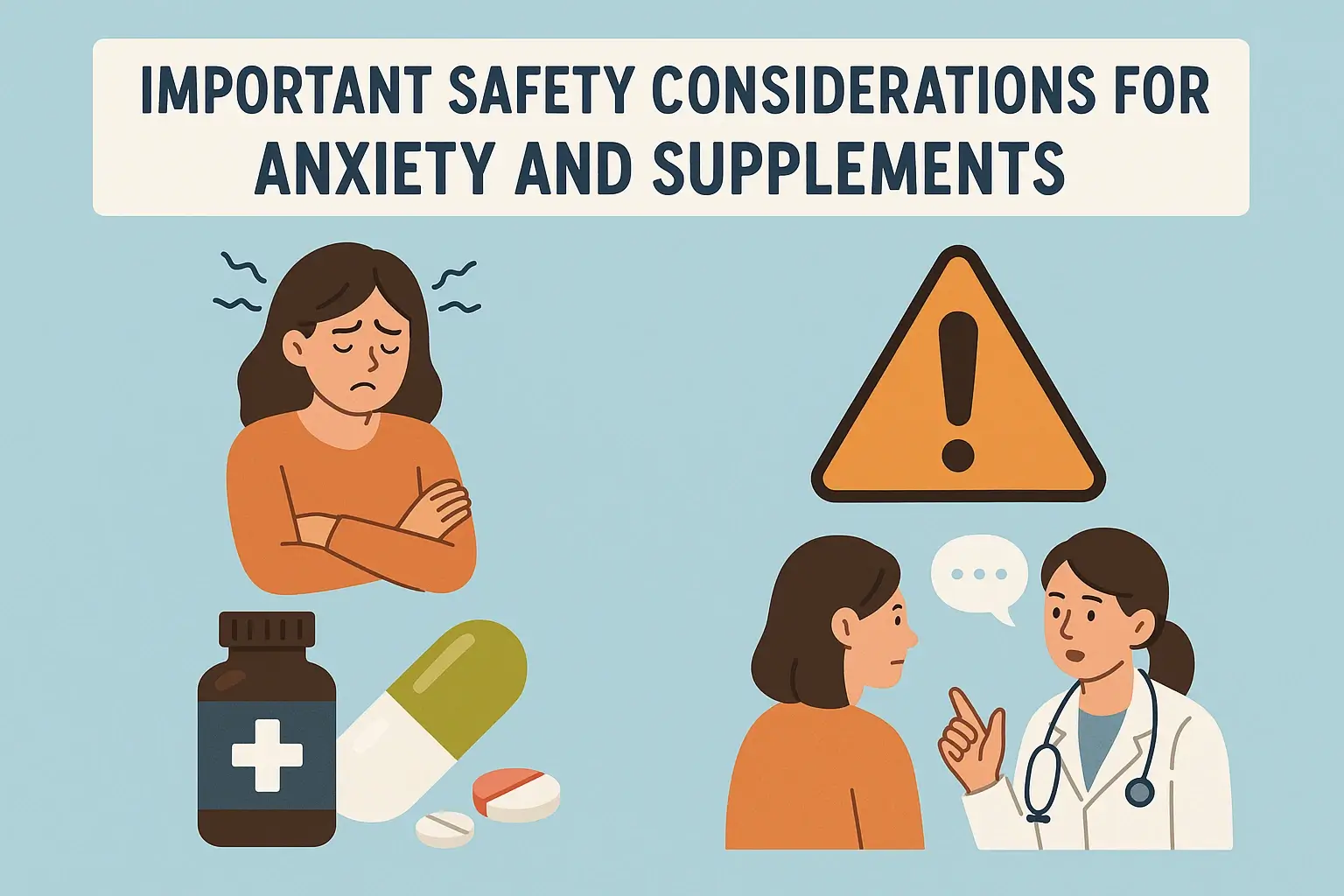
Before looking at supplements for anxiety, it's important to know the safety concerns. This protects your health and helps you set the right expectations.
Why Medical Consultation Is Essential
Talk to your healthcare provider before starting supplements if you have anxiety. Supplements are essential because they can affect anxiety medications. This includes SSRIs, SNRIs, and benzodiazepines. These interactions can make your medications less effective. They might also lead to harmful side effects.
Some supplement ingredients affect neurotransmitter systems that anxiety medications target. Taking both without medical supervision can lead to issues. It may reduce treatment effectiveness. It can also cause serotonin syndrome, which is a serious condition.
Symptoms you think are from prostate issues or other health problems might really point to anxiety disorders. These can show up as physical symptoms. Anxiety often causes physical symptoms. These can include frequent urination, stomach issues, muscle tension, and trouble sleeping. Proper diagnosis ensures you receive appropriate treatment for what's actually causing your symptoms.
Realistic Expectations About Supplements and Anxiety
Supplements are not treatments for anxiety disorders. If you have severe anxiety symptoms, such as those from generalized anxiety disorder, panic disorder, social anxiety, or health anxiety, seek mental health treatment first.
Delaying effective evidence-based anxiety treatment for supplements can make anxiety worse. This can lead to tougher treatment later on. Anxiety disorders typically don't improve on their own and often worsen without treatment.
Supplements may ease physical anxiety symptoms. But you might still need professional help for an anxiety disorder. Improving physical symptoms doesn't automatically fix learned anxiety patterns. It also doesn't change stress responses or established anxiety disorders.
Supplements may help with physical symptoms linked to anxiety. In contrast, professional mental health treatment focuses on the anxiety itself. This combined approach tackles both contributing physical factors and the anxiety disorder simultaneously.
Monitoring for Problems
If you decide to take supplements after talking to your doctor, keep an eye out for any issues. This helps protect your health. Keep an eye out for new or worsening anxiety symptoms. Notice any changes in mood or emotional control. Watch for physical side effects and interactions with other medications. Check if physical symptoms or anxiety show no improvement after a reasonable trial period.
Stop using supplements and reach out to your healthcare provider if you notice any concerning symptoms. Contact them if your anxiety worsens or if you have new health issues while taking supplements.
Approach to Mental Health Education for Men Support
At Gendrics, we focus on clear, evidence-based mental health education for men. Our goal is to help you understand and manage anxiety using proven methods.
Our Anxiety and Mental Health Mission
Gendrics dedicates itself to educating about anxiety and mental health. Anxiety disorders are common and treatable. However, many people still suffer due to a lack of information and treatment.
Our approach focuses on understanding all factors that contribute to anxiety. This includes:
- Biological factors: hormones and physical health
- Psychological factors: thought patterns and learned behaviors
- Social factors: relationships and life stress
- Lifestyle factors: sleep, exercise, and stress management
Each factor plays a key role in anxiety.
Managing anxiety requires a broad approach. It involves addressing many factors, not just one solution. We give you information to help you see these connections. This way, you can work with healthcare providers to create complete treatment plans.
Resources for Understanding Anxiety
Our Anxiety Disorders and Stress Management section gives clear information on different anxiety disorders.
This includes:
- Generalized anxiety disorder
- Panic disorder
- Social anxiety disorder
- Health anxiety
- Specific phobias
Knowing what kind of anxiety you're facing helps you get the proper treatment. It also sets realistic expectations for recovery. Different anxiety disorders respond to specific therapies. So, understanding them well is key to effective care.
We offer resources on evidence-based anxiety treatment options. This includes details on various therapy approaches, medications, and how they work. You'll discover lifestyle tips to help manage anxiety. You can also try stress reduction techniques immediately.
Connecting Physical and Mental Health
Our content on Sleep and Mental Health shows important connections between sleep and anxiety cycle. It shows how better sleep can lower anxiety. Also, treating anxiety can lead to improved sleep.
Hormones affect mood and anxiety. This section shows how hormonal changes play a role in mental health. It also explains when to think about hormones in anxiety. Plus, it offers tips on discussing these topics with healthcare providers.
Men's mental wellness resources focus on the specific challenges men experience with anxiety. Cultural barriers can stop people from seeking help. Also, anxiety can look different in men. They also offer strategies to overcome stigma around mental health treatment.
Critical Thinking About Health Information
Gendrics helps you think critically about health claims. You learn to tell the difference between marketing and objective medical evidence. You also understand how to judge research quality and spot red flags in health product ads.
Critical thinking keeps you safe from misleading claims. It helps you spot trustworthy sources and evidence-based methods. In a world full of health myths, these skills are key to making smart choices.
We believe education empowers better health decisions. Understand anxiety well. Know the proven treatment options. Think critically about health claims. This way, you can advocate for your own mental health care.
When Physical Health Treatment Should Include Mental Health Support
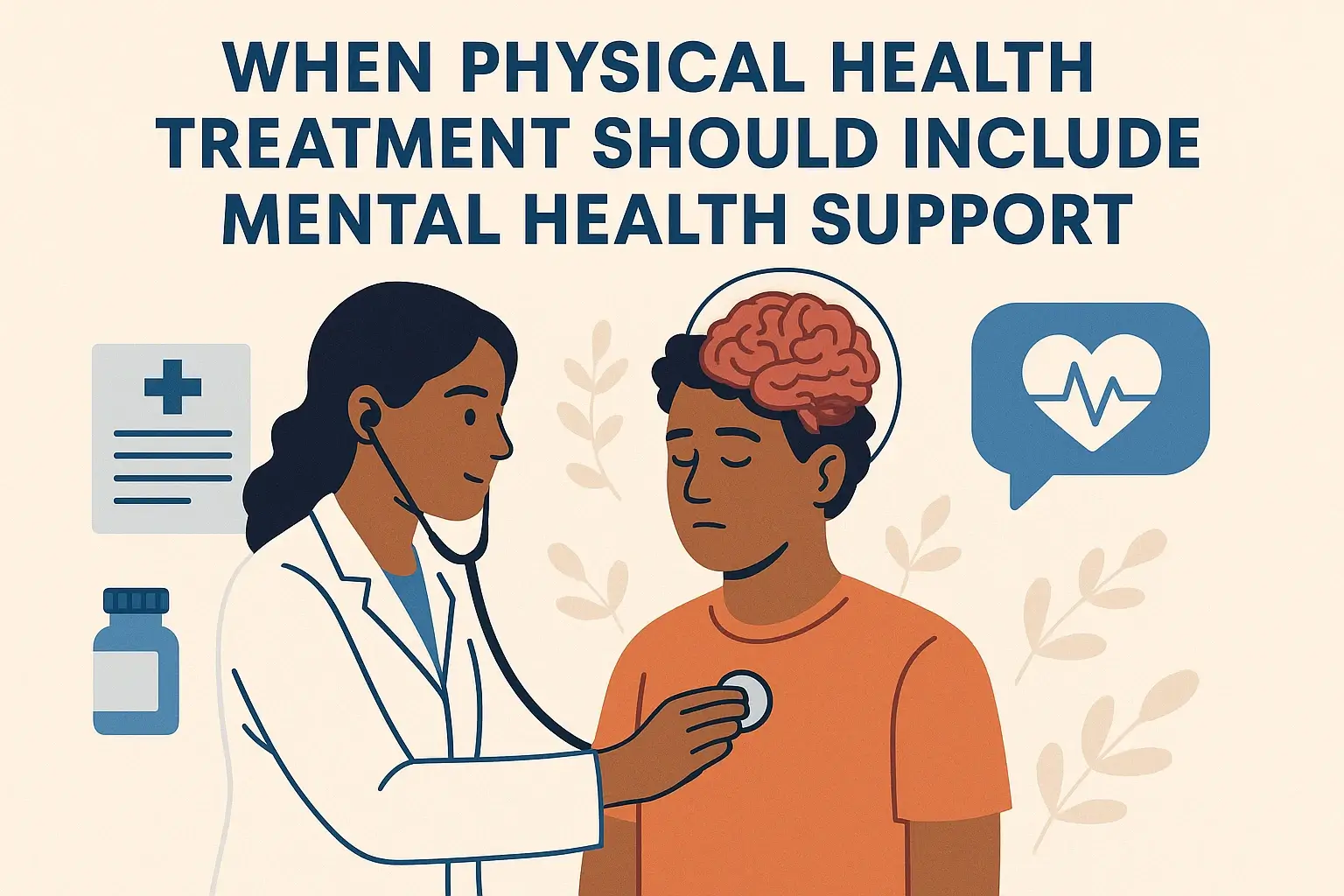 Recognizing when physical symptoms require a mental health check can lead to better overall care for your well-being.
Recognizing when physical symptoms require a mental health check can lead to better overall care for your well-being.
Signs Indicating Anxiety Treatment Is Needed
Some signs show that anxiety is now a separate issue. It needs its own treatment, not just focusing on physical health.
These include:
- Ongoing worry that continues even when symptoms improve.
- Anxiety that disrupts work, relationships, or daily life.
- Avoiding situations because of anxiety about symptoms.
- Sleep issues are caused more by worry than by symptoms.
- Physical symptoms, like rapid heartbeat or sweating, appear without health problems.
If you notice these patterns, it's crucial to get a mental health evaluation, even if you're physically healthy. Anxiety disorders are unique conditions. They need specific treatment, even if they start with physical health issues.
Building Integrated Care Teams
Treating anxiety linked to physical health issues often requires teamwork from different healthcare providers. Your primary care doctor manages overall health and physical conditions. Mental health experts, such as psychologists, psychiatrists, and licensed counselors, treat anxiety. They use therapy and, when needed, medication. Specialists addressing specific physical health concerns contribute to well-being.
Communication between providers ensures treatments work together rather than conflict. Your primary care doctor may share your physical health status with your therapist. Mental health providers might consult on how medications interact with other conditions. Specialists also need to know how their treatments can impact your mental health.
Feel free to help with communication. Sign the correct release forms. Bring contact info for all your providers to your appointments. Also, ask how the treatments interact.
The Importance of Not Delaying Mental Health Care
One key point is this: don't wait to get mental health treatment. Relying only on physical health treatments for anxiety isn't enough. If you're feeling a lot of anxiety, begin mental health treatment right away. Also, take care of your physical health.
Anxiety disorders usually get worse without treatment. The longer they last, the harder they are to treat. Early treatment leads to better results. It helps prevent anxiety from causing more problems at work, in relationships, and for physical health.
Many men wait to seek mental health help. They think fixing physical issues will also fix their anxiety. Anxiety can still need treatment, even when physical health improves. Starting mental health treatment early provides relief sooner and prevents unnecessary suffering.
Conclusion
Anxiety involves understanding how physical health, hormones, sleep, stress, and life events impact mental health. These factors are all linked and influence each other in complex ways. Good anxiety management looks at all these factors. It uses a mix of approaches instead of just one solution.
Prostavive Colibrim and similar supplements might ease physical symptoms of anxiety in some men. However, they are not treatments for anxiety. Seek professional mental health care if your anxiety symptoms match those of anxiety disorders.
The mind-body connection shows that easing physical pain and enhancing sleep can boost mental health. Also, treating anxiety often leads to better physical health. Each domain needs specific interventions. Treating one may not solve the other.
At Gendrics, we focus on evidence-based ways to manage anxiety. We begin with a professional evaluation and provide therapy and medication when needed. Lifestyle modifications, including exercise, sleep improvement, and stress management, support professional treatment. Physical health care addresses symptoms contributing to anxiety. Critical thinking about health claims protects you from misleading information.
To manage anxiety well, start by getting a proper evaluation and treatment. Don't try to handle it just with self-treatment or supplements. Anxiety disorders can be treated effectively with the right professional help. Most people see a big improvement when they get the proper treatment.
Don't let stigma, embarrassment, or the belief that only physical treatments can help you stop you from getting mental health care. Taking action against anxiety shows strength. It's a form of self-care that improves all parts of your life.

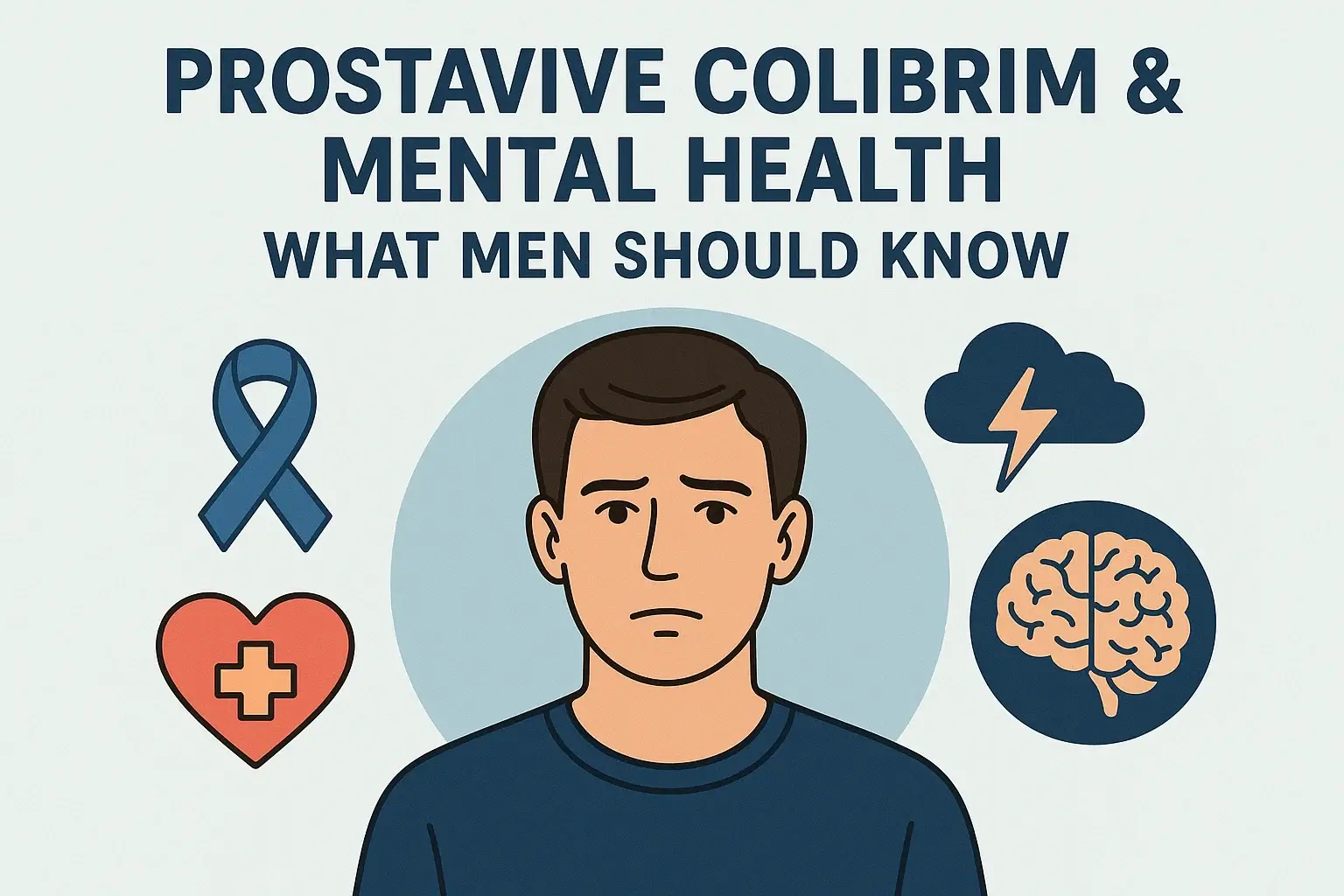
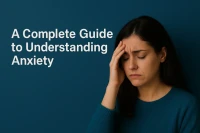
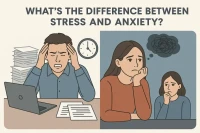
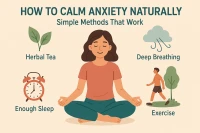
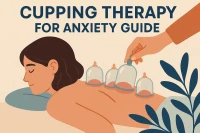
Comments